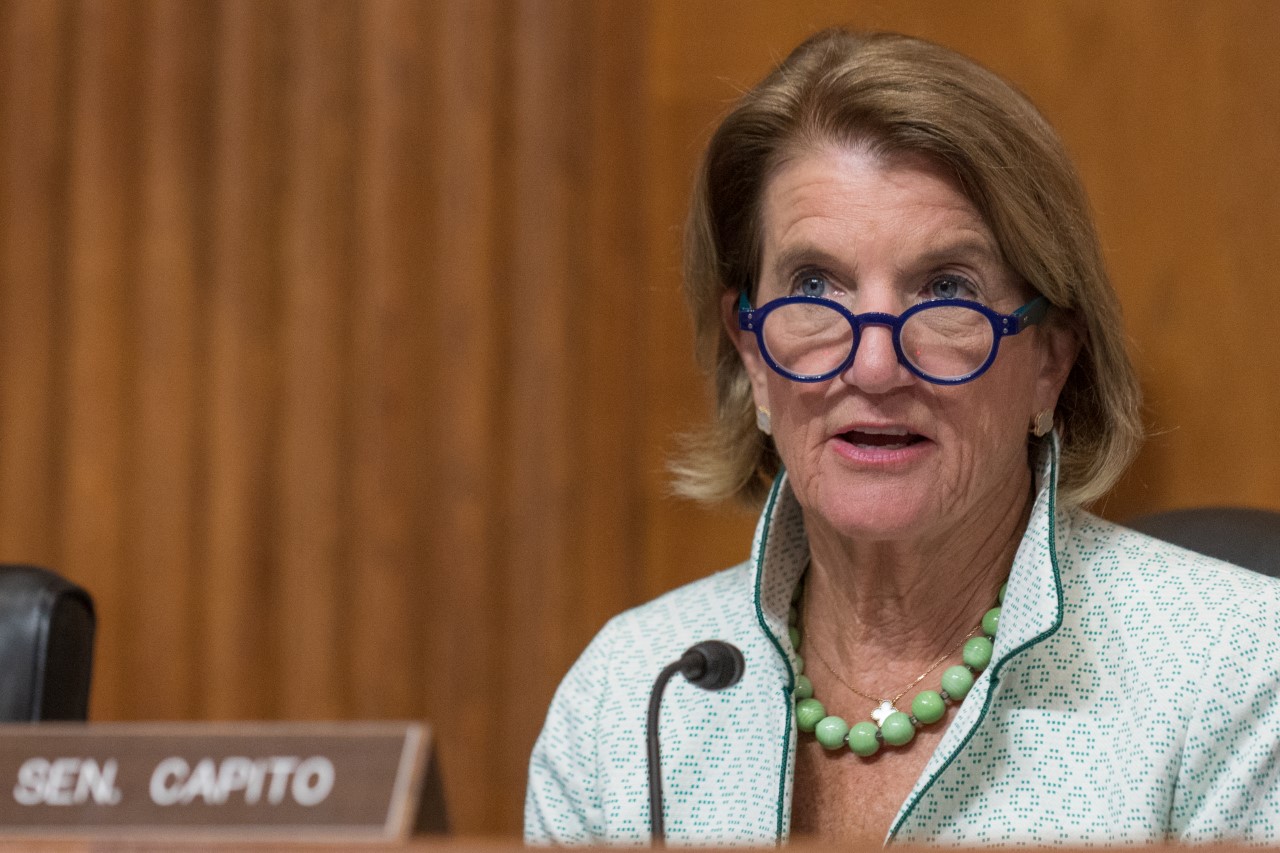Senator Shelley Moore Capito grilled the U.S. Environmental Protection Agency chief over final rules requiring coal-fired power plants in the United States to reduce 90% of their greenhouse pollution into the next decade.

Capito, R-W.Va., posed her questions Wednesday during a meeting of the U.S. Senate’s Environment and Public Works Committee, where she is ranking member.
EPA administrator Michael Regan was before the committee to discuss the agency’s budget proposal for the next fiscal year.
Capito expressed concern that EPA’s coming standards will cripple coal and natural gas, that carbon capture technology that could extend the lifespan of fossil fuels as an energy source is expensive and not ready for prime time and that the Biden administration’s energy evolution will result in strains on the nation’s energy grid.

Under the EPA rule announced last month, coal plants that plan to stay open beyond 2039 would have to cut or capture 90% of their carbon dioxide emissions by 2032. Plants that expect to retire by 2039 would face a less stringent standard but still would have to capture some emissions. Coal plants that are set to retire by 2032 would not be subject to the new rules.
EPA’s rules come under the Clean Air Act, Clean Water Act, and Resource Conservation and Recovery Act. EPA described the announcement as providing regulatory certainty as the power sector makes long-term investments in the transition to a clean energy economy.
“Right now our energy mix is 60% fossil fuel –16% coal, 43% natural gas — 18% nuclear, 20% renewable,” Capito said.
“The plan that you put out, the clean power plan that will basically make every coal plant extinct because nobody’s going to be able to afford to do that on an aging coal plant — so those will be gone in the 2030s — and then nobody’s going to build a new one unless they only run it under 40% because they’re not going to be able to meet the demand.”
She asked Regan if he’s aware of a power plant that meets the 90% standard.
Regan responded by saying he would “push back on the notion that this rule is going after coal.” He continued, “Some of these coal plants were already going to sunset because they’re transitioning to natural gas. Some of these coal plants we do believe will be able to take advantage of (carbon capture and sequestration technologies.”
Capito interjected, “Is anybody doing that now?” Before Regan finished his response, Capito said, “Well, the answer is no.”
Regan continued by saying, though, “There are utilities that are putting on this technology and beginning to use it. They’re also taking full advantage of the resources provided by the Inflation Reduction Act, tax code by the Inflation Reduction Act, to invest in this very technology. So our timeline does match with the resources currently going to utilities who are investing in (carbon capture and sequestration) technologies.”
After Capito’s round of questions concluded, the chairman of the committee, Senator Tom Carper of Delaware, moved to submit into the record materials describing forthcoming carbon capture projects across the nation.

Carper, who was born in Beckley, then noted “Just last month, I’m told, West Virginia regulators approved one of the largest gas power plants with carbon capture in our nation, generating millions of dollars of economic benefits for the surrounding communities.”
Carper also asked about the effects of the new rules on the nation’s energy capacity.
“EPA’s recent efforts to cut emissions of greenhouse gases and toxic pollutants from power plants are expected to deliver significant public health and climate benefits,” said Carper, a Democrat. “Despite these benefits, some focus intently on potential impacts to grid reliability and related compliance schedules.”
Then Carper asked, “As I understand it, EPA has carefully considered those potential impacts in the development of its new regulations. Could you briefly describe for us the mechanisms in the rule to ensure grid reliability is maintained?” He followed up by asking, “What actions will EPA take in the future to avoid challenges to grid reliability?”
Regan’s response first emphasized the health benefit estimates. On power capacity, Regan said, “We understand that we’re seeing increased demand. But we’re also understanding that there’s a tremendous investment from historic legislation into technological advancement and investments in the grid that will make all of this possible. We’re confident that we have mitigated any grid reliability issues that are current and that could potentially be a future threat.”

